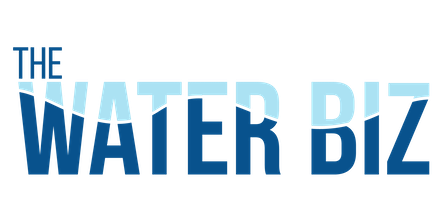Perhaps the best place to start in understanding hard water is to ask a few important questions. The first question to consider is, “Where does my water come from?” The second and equally important question is, “How does water get to my home or business?“
Two Important Questions
- Where does my water come from?
- How does my water get to a home or business?
Where Does My Water Come From?
This question helps identify what type of water a home or business uses. This could be surface water, groundwater, rainwater, or seawater. While this will vary by location, the most common water types in the U.S. are surface water and groundwater. Each water type could require different types of treatment. Knowing the source of your water will help identify potential contaminants.
How Does Water Get To My Home Or Business?
This question helps identify the water source. The most common options for those living in the United States are a public water system or a private well. Each of these options has a different set of needs and expectations.
Why Are These Questions Helpful?
The information gained from these two questions provides a starting point for a home or business. It helps anticipate needs and sets expectations for what will be needed to provide clean water.
What Is Hard Water?
The term is used a lot, but what exactly is hard water? According to the USGS, hard water or water hardness is “the amount of dissolved calcium and magnesium in water.” In this article, we will discuss how water hardness is measured, the side effects, both positive and negative, common signs, and solutions.
How Is Water Hardness Measured?
When most individuals use the term hard water, they are referring to water that contains a high level of dissolved calcium and magnesium. This is often best determined by testing water to reveal dissolved minerals and other contaminants in water. The results of this test aid in classifying the hardness of the water source.
Measuring Water Hardness
| Amount | Unit of Measure | Classification |
|---|---|---|
| 0 to 60 | mg/L (milligrams per liter) | as calcium carbonate is classified as soft |
| 61 to 120 | mg/L | moderately hard |
| 121 to 180 | mg/L | hard |
| > 180 | mg/L | very hard |
…the amount of dissolved calcium and magnesium in water.
USGS
What Are the Negative Effects?
For many in the U.S. and abroad, hard water is first made known through its negative effects. This is often seen with mineral buildup on showerheads or faucets. Many will feel these effects through dry, itchy skin. For others, it might be while caring for their hair.
The harsh effects of hard water can reduce the lifespan of fabrics or clothing. It is known to reduce the ability of detergent, soap, or shampoo to lather when it comes in contact with water. This can lead to an increase in the amount of soap needed for bathing, washing clothes, or cleaning dishes. While none of these are life-threatening, living with hard water can be challenging.
What Are The Positive Effects?
Now that you are aware of the negative effects of hard water, you may be asking yourself, “Are there any positive aspects to hard water?” The short answer to that question is “maybe.” According to the World Health Organization (WHO), when examining the dietary contribution of calcium and magnesium from drinking water, “…mineral-rich drinking-waters may provide substantial contributions to total intakes of these nutrients in some populations or population subgroups.” Armed with a list of the negative effects, you may now be more aware of how your home or business is impacted.
What Are Common Signs of Hard Water?
If you find yourself a little unsure whether your home or business has a hard water problem, there are a few telltale places to look. Perhaps the most common areas people tend to notice hard water is on water faucets, showerheads, or in their toilets. Scale buildup or mineral deposits are visible stains left on water fixtures such as a showerhead. Another common way to spot hard water is on dishes or silverware. If you suspect your home or business has hard water, contact a water quality professional such as The Water Biz. One of our technicians will collect a water sample and send it off to a lab to determine the hardness of your water.
Common Signs of Hard Water
- Spots on dishes, silverware, glassware
- Mineral scale buildup on shower fixtures, tubs, sinks, and toilets.
- Poor soap lathering leads to an increase in soap usage
- Dry, itchy skin
- High energy bills – Increase in energy needed to heat water
- Reduced water pressure
- Lower than normal appliance lifespan
- Clogged pipes and fixtures such as faucets or showerheads
Common Solutions For Hard Water
- Salt-based Water Softeners
- Salt-free Water Conditioners
Salt-based Water Softeners
A salt-based water softener is an appliance that removes minerals such as calcium and magnesium from water through a process called ion exchange. These systems exchange the positively-charged calcium and magnesium ions found in hard water with sodium ions from the salt in the brine tank. Systems are comprised of a mineral tank, a brine tank, and a programmable controller/head.
Water Softener Benefits:
- Hardness minerals are removed from the water
- Less money spent on appliance repair, plumbing repair
- Home Appliances Last Longer
- Less money spent on detergent, soap
Salt-free Water Conditioners
An alternative solution to a salt-based softener is a salt-free water conditioner. These utilize a different approach than the more well-known ion exchange water softeners. The phrase conditioner is used here intentionally to differentiate them from water softeners because they technically do not soften hard water. Conditioners work by altering the chemical structure of calcium and magnesium minerals through the process of descaling. The goal of salt-free conditioners is to reduce scale.
Salt-free Conditioner Benefits:
- No need to refill with salt
- Wastewater is significantly reduced or eliminated
- Beneficial minerals remain in the water.
As we wrap up our discussion, remember that testing your water is an essential piece in understanding what is in your water. If you are looking to learn more, a basic understanding of water types, water sources, and how water gets to a home or business is a big help when it comes to understanding water filtration. We hope this explanation of hard water and common solutions has proven beneficial. If you or your business would like more information, contact The Water Biz today!



